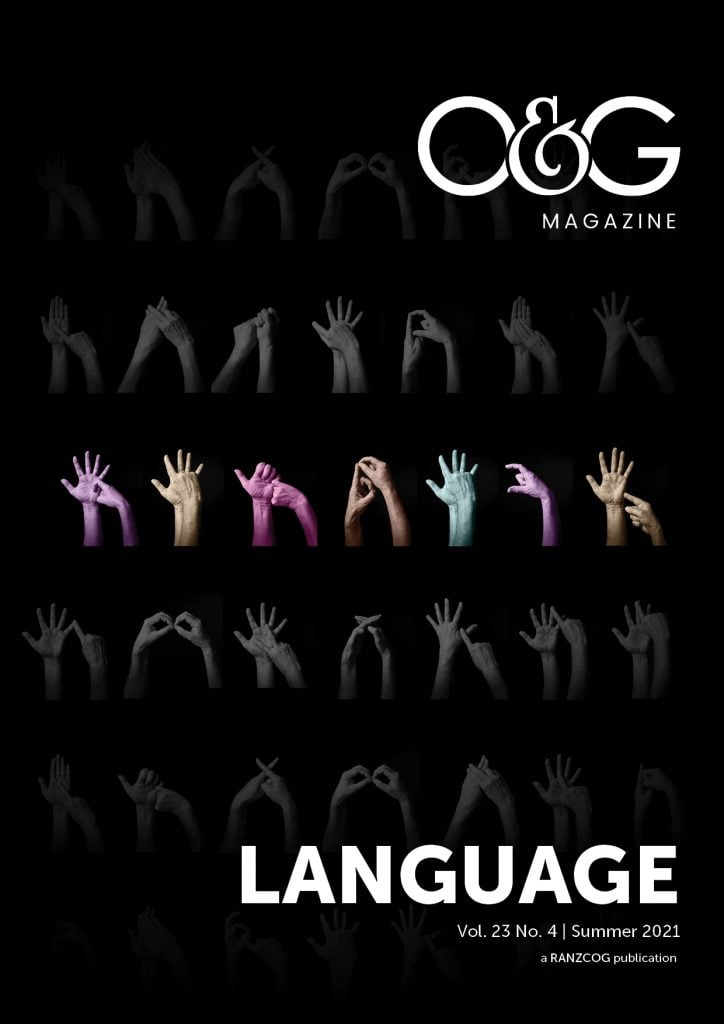Each birth is a unique experience and is influenced by many variables. If it is true that not everything can be foreseen and planned, it is equally true that every woman placed at the centre of her path and accompanied by a solid network of support and care can live any experience of childbirth in the best possible way, with respect and awareness.
Recently, communication has gained more and more importance in healthcare: how bad news is broken is essential for the wellbeing of patients and healthcare practitioners (HCPs). This topic assumes a pivotal role when a perinatal loss occurs: grieving parents have invested in a life project that they must necessarily redefine and modify, and negative interactions with HCPs are added to the trauma that they are experiencing. On the other hand, compassionate care positively affects traumatic symptoms, helping bereaved parents to cope with grief.1 It is crucial for caregivers to work with grieving couples to reduce the impact of the event and to enhance post-traumatic recovery.2
Co-building an imaginary of possible, multifaceted and inclusive childbirth, allows HCPs to favour the application of the principles of respectful and compassionate care in any birth experience, however dramatic it is. It also allows to reduce the impact of the ‘unspoken’ around labour and birth, often still considered intimate, private and unspoken spaces, especially in case of loss.
Every life event, even the happiest, is characterised by shifting the psychophysical balance of people who live it, pushing them towards rebalancing and readaptation to a new situation. When the life event is negative or even destructive, as in the case of perinatal loss, its effects on the psychophysical wellbeing are enormous and very often for HCPs there is nothing else to do than use a respectful and non-judgmental communication channel.
Nowadays, respectful communication and language represent the core of patient-centred care, which is an essential part of care after stillbirth as recommended in all guidelines on stillbirth and neonatal death.3
However, many mothers still highlight HCPs’ inadequate communication skills, perceiving practitioners as vague and avoidant when a stillbirth occurs.4 5 Similarly, HCPs recognise their difficulties when facing this type of event6 and they have pointed their attention to the key role of suitable communication skills.7
Literature offers some useful instruments to HCPs when breaking bad news in a respectful manner. For instance, the SPIKES protocol, born in the oncology field, is an easy-to-follow guideline that can be applied in perinatal care.8 9 It guides the HCP before, during and after the communication of the diagnosis, focusing on respectful language and promoting ‘shared decision making’.
Clinicians and researchers involved in stress response and stress-related outcomes know that to promote the best response to a stressful life event it is important to equip the person with certain tools which are part of the process of shared decision making. Among these tools stands out the availability of correct information related to that experience and its management, the possibility of receiving emotional and professional support from competent people, and the possibility of making the best possible decision for themselves, while maintaining their autonomy and self-determination. These tools allow the suffering person and their caregivers to work on the experience in a competent, safe and respectful way.
Stillbirth is a dramatic event that involves HCPs too. It is amongst the most difficult experiences for health professionals and the fact that 95% of them report negative psychological symptoms after such loss is proof of that.10 11 Moreover, HCPs’ emotional burden could impact care due to their attitudes during hospitalisation and follow-up, influencing parents’ wellbeing and their approach toward the baby.12 Helping HCPs to deal with their emotional status should be of primary importance to guarantee an adequate job environment, which in turn is essential for the best possible care.
As mentioned above, respectful language is a key point of patient-centred care, and it is essential to avoid further traumas to parents. Moreover, it is the only tool HCPs have at their disposal to meet the couple’s need to be acknowledged as parents, and the baby’s right to have his existence and their impact recognised outside of the parental dyad. Stillbirth undermines a person’s identity and their social role, which has then to be reconstructed and redefined. This task goes through the acknowledgment of parenthood by the couple itself and by others; for example, referring to the parents using words such as ‘mum’ or ‘dad’ could be a simple yet extremely helpful step to support them during the first numbing hours and days after the loss.
There is a wide agreement that specific training is required to learn respectful communication, as general communication skills and HCPs’ personal experiences are not necessarily enough to meet bereaved parents’ needs. Moreover, empathy is a learned construct, so it is necessary to have solid theoretical and practical knowledge; participating in specific training might help to build the necessary skills.13 This has been previously highlighted in literature: studies such as BLOSSoM2 showed that only half of midwives usually say ‘I’m sorry’ to parents during the diagnosis of a stillbirth though parents recognise it as a widely appreciated approach.14
Finally, we strongly believe that it is necessary to increase not just HCPs’ awareness on the use of respectful language but also that of researchers, for two main reasons: HCPs use scientific literature as the main source of their knowledge and, more importantly, research should meet the parents’ needs such as respect and understanding, since nowadays women and families can easily access academic journals. Adopting woman-centred, respectful language when writing about pregnancy, childbirth, and puerperium, and considering the effect of those words on the people who will read them, may well help to elevate respectful care into usual care.3
Our feature articles represent the views of our authors and do not necessarily represent the views of the Royal Australian and New Zealand College of Obstetricians and Gynaecologists (RANZCOG), who publish O&G Magazine. While we make every effort to ensure that the information we share is accurate, we welcome any comments, suggestions or correction of errors in our comments section below, or by emailing the editor at [email protected].
References
- Janzen L, Cadell S, Westhues A. From death notification through the funeral: bereaved parents’ experiences and their advice to professionals. OMEGA – J Death Dying. 2004;48(2):149–64.
- Ravaldi C, Carelli E, Frontini A, et al. The BLOSSoM study: Burnout after perinatal LOSS in Midwifery. Results of a nation-wide investigation in Italy. Women and Birth. 2021 Jan.
- Ravaldi C, Vannacci A, Homer C. Respectful language in intrapartum and newborn care. Lancet Glob Heal. 20211;9(1):e17.
- Draper ES, Kurinczuk JJ, Kenyon S. MBRRACE-UK Perinatal confidential enquiry: term, singleton, normally formed, antepartum stillbirth. Leicester: The infant mortality and morbidity studies, Department of Health Sciences, University of Leicester; 2015.
- Nordlund E, Borjesson A, Cacciatore J, et al. When a baby dies: motherhood, psychosocial care and negative affect. Br J Midwifery. 2012;20(11):780–4.
- Easen S, Harrison G. Communication skills training in ultrasound: ultrasound practitioners’ views. Imaging Ther Pract. 2017;25–30.
- Brasseur L. Sonographers’ complex communication during the obstetric sonogram exam: an interview study. J Tech Writ Commun. 2012;42(1):3–19.
- Baile WF, Buckman R, Lenzi R, et al. SPIKES-A six-step protocol for delivering bad news: application to the patient with cancer. Oncologist. 2000;5(4):302–11.
- Greiner AL, Conklin J. Breaking bad news to a pregnant woman with a fetal abnormality on ultrasound. Obstet Gynecol Surv. 2015;70(1):39–44.
- Heazell AEP, Siassakos D, Blencowe H, al. Stillbirths: economic and psychosocial consequences. Lancet. 2016;387(10018):604–16.
- Nuzum D, Meaney S, O’Donoghue K. The impact of stillbirth on consultant obstetrician gynaecologists: a qualitative study. BJOG. 2014;121(8):1020–8.
- Sanchez NA. Mothers’ perceptions of benefits of perinatal loss support offered at a major university hospital. J Perinat Educ. 2001;10(2):23–30.
- Ravaldi C, Levi M, Angeli E, et al. Stillbirth and perinatal care: are professionals trained to address parents’ needs? Midwifery. 2018;64:53–9.
- Pullen S, Golden MA, Cacciatore J. ‘I’ll never forget those cold words as long as I live’: parent perceptions of death notification for stillbirth. J Soc Work End-of-Life Palliat Care. 2012;8(4):339–55.








Leave a Reply